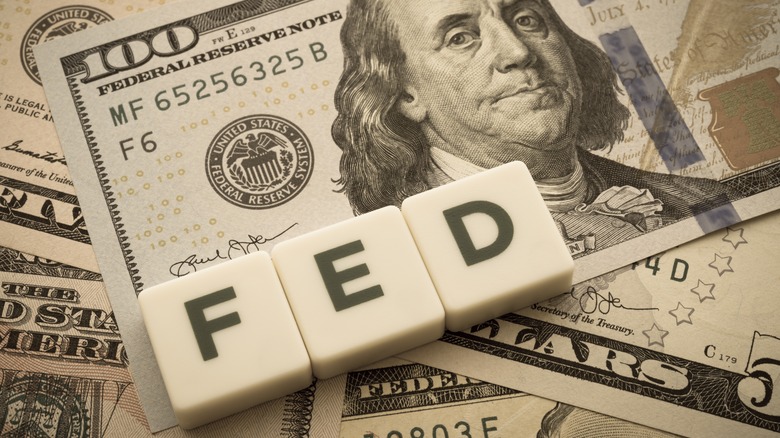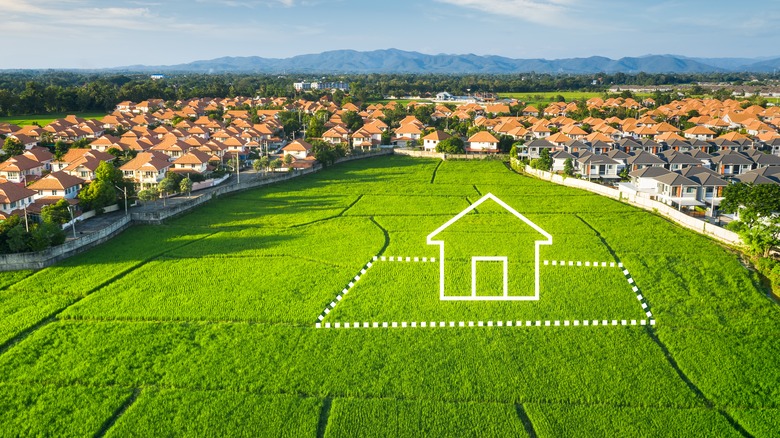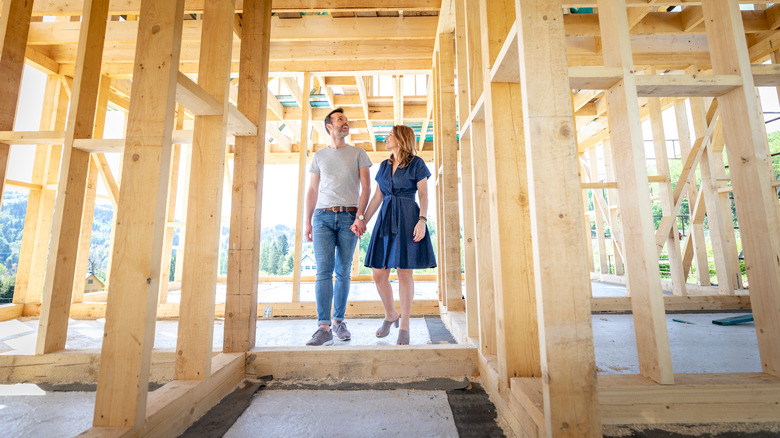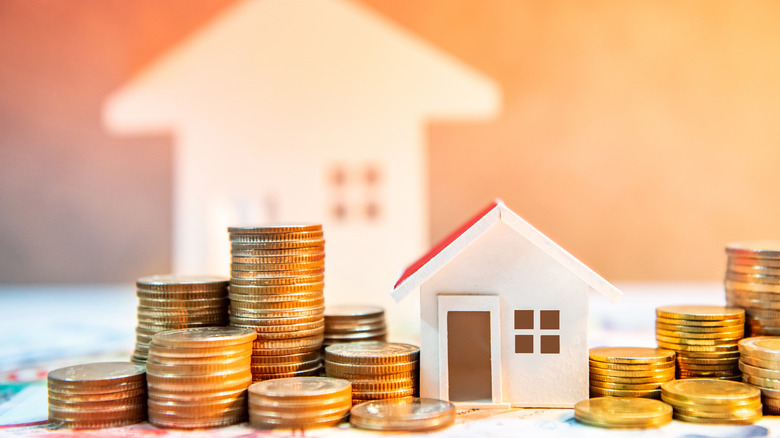An Expert Predicts What Rising Interest Rates Will Mean For The New Construction Market – Exclusive
Rising interest rates have been a hot topic in the news lately. In September of 2022, the Federal Reserve increased its benchmark interest rate by .75 percentage points, marking the third time it has had such a significant increase since June, according to NPR. The increase wasn't unexpected, as August reports showed annual inflation had increased by 8.3% for the year, and raising rates is one way the Federal Reserve works to reduce inflationary growth.
As the benchmark interest rates inch up, there's a lot of speculation about what this will mean for various markets, investors, and borrowers, including how it could impact the new construction market. Danny Marshall, who has been a mortgage broker for over 12 years and in the real estate industry as a real estate agent for the last six years, shares his outlook in an exclusive interview with House Digest. If you're thinking about building a home, here's what to keep in mind.
It can affect the availability of financing
The new construction market is dependent on access to affordable financing, and changing interest rates impact not just the cost but the availability of spending. "When rates are low, there is more money available for lending," says Marshall, adding, "This means that builders can more easily get the financing they need to start new projects." That's the way the market has been for some time, benefiting from significantly lower interest rates. However, market conditions are changing.
As Marshall explains, "As rates rise, the amount of money available for lending decreases. This can make it more difficult for builders to get the financing they need to start new projects." That could mean that some new home subdivisions or new developments may not get underway with less money available to put toward those projects. That doesn't mean an end to new housing, but it could impact availability in some areas.
Rising interest rates can impact the demand for new construction
Rising interest rates also impact buyers who need mortgage loans to purchase new construction homes. As mortgage broker Danny Marshall tells House Digest, "When rates are low, buyers have more purchasing power. This means they can afford to buy more expensive homes.". The amount of interest on any loan impacts how much a monthly payment will be. When rates are low, monthly payments are lower. Marshall notes, "As rates rise, buyers have less purchasing power."
How does lower affordability impact the market? According to Marshall, it plays a big role, as he says, "This can lead to a decrease in demand for new construction." When fewer people can afford to buy more expensive homes, demand for them falls, which could mean fewer borrowers are even interested in these homes. With less demand like this, that could mean fewer projects get underway in any region that's impacted.
Rising interest rates can impact the cost of construction
Many construction companies need to borrow money from lenders to help with the purchase of equipment, materials, and other needs. With interest rates rising, that's going to impact the access to those loans as well. "When rates are low, builders can borrow money for construction at a lower interest rate. This can save them money on the overall cost of the project," says Marshall. It's not hard to see how the cost of a construction company's borrowing is passed down to the homebuyer, like most other costs associated with operating a business.
As interest rates tick upward as they have been, that's likely to impact construction loans as well. As that happens, the cost of a new construction home is going to increase as a direct result, according to Marshall. As a homebuyer, that means you may end up with a quote for a new home that's higher than what it would have been when rates were lower.
Rising interest rates can impact the value of completed projects
For some, pushing through to build a new home is still worth it, even at the higher costs. They agree to the increased rates from their lenders and pay the higher cost to the construction company, but as Danny Marshall explains to House Digest, higher interest rates impact the actual value of the home as well. He says, "When rates are low, buyers are willing to pay more for a home because they know they can get a low mortgage rate."
However, that changes as rates increase, and it's harder for buyers to see that the increase in price for a newer home on the market is worthwhile. "As rates rise, the value of completed projects may decrease because buyers will be less willing to pay as much for the home," states Marshall. That may mean that if you turn around to sell your home, you may not get what you put into it.




